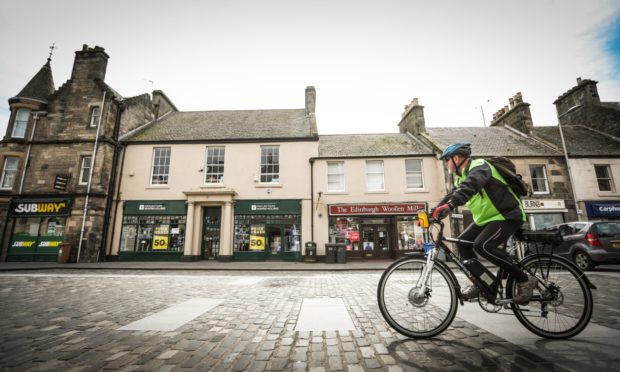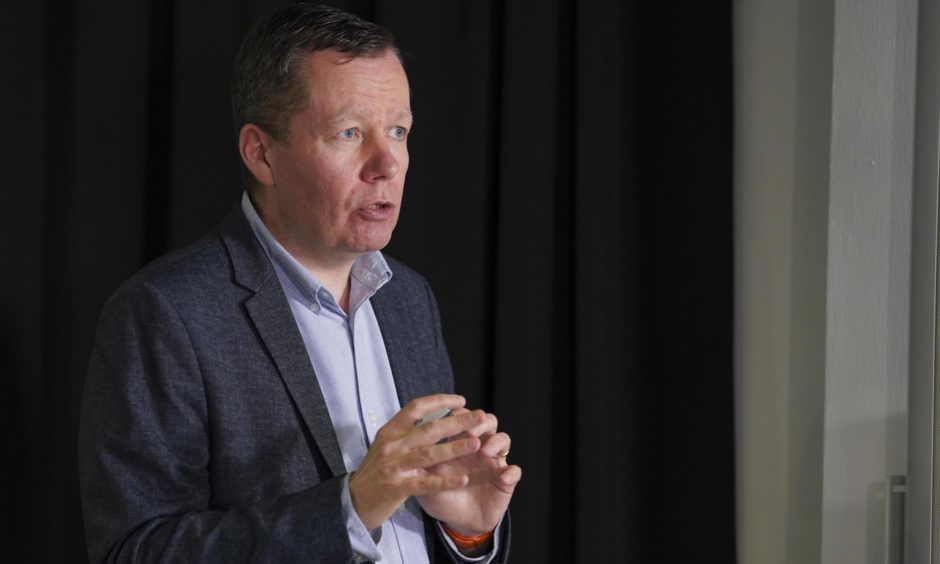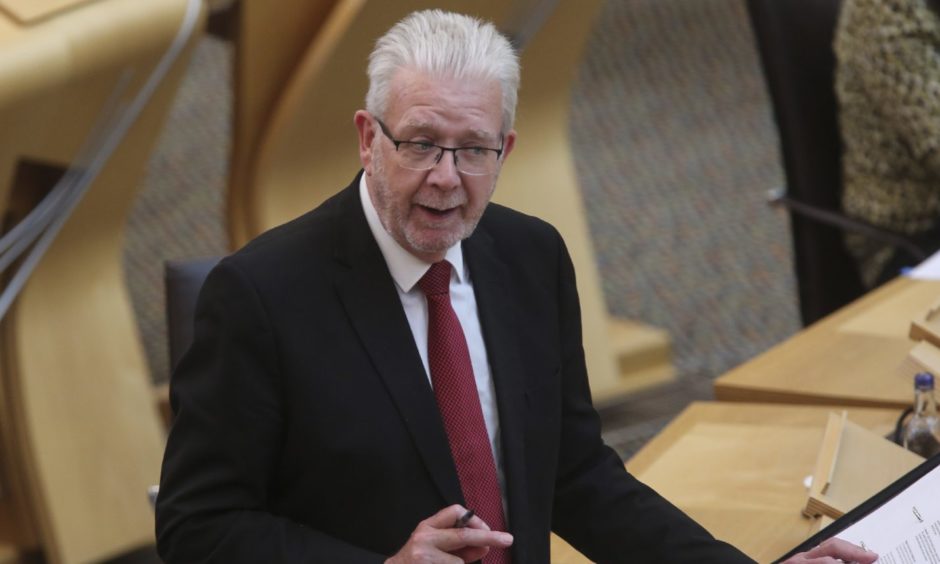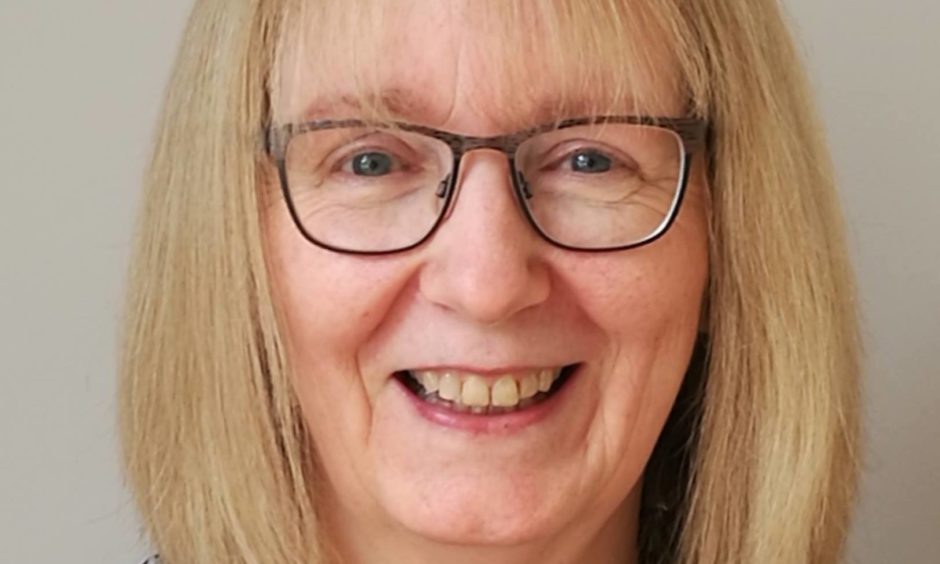Coronavirus infection rates in Fife have “turned a corner” but the area still has some way to go before moving down a restriction level, Scotland’s clinical director has warned.
Professor Jason Leitch briefed MSPs on the Covid-19 committee on Thursday morning on how efforts in tackling the pandemic are going.
Fife and Perth and Kinross were both placed in stricter measures earlier this month, joining Dundee, Angus and the rest of the central belt in firmer restrictions.
Professor Leitch said the programme is working to reduce infection in Fife, but it will be some time yet before it could be placed into level two.
He added Perth and Kinross had shown no signs of its infection rates decreasing prior to being placed into firmer lockdowns, even though it had a relatively low rate of infection compared with other tier three councils.
‘Turning the corner’
Fife and Perth and Kinross were placed into level three measures earlier this month amid a stark rise in positivity.
Since then, travel restrictions have been implemented to prevent people from travelling between local authority areas.
Professor Leitch said: “In Perth and Kinross the graph continues to rise, but slowly.
“That is why we thought level three was needed, to pull it down… it appears to have stabilised.
“The positivity rate high was high as 5% and is now 4.7%.
“It has flattened but not turned the corner.
“Fife was earlier into level three. It is down 27% in the last seven days, which is what you would expect level three restrictions to do.
“The curve in Fife has started to turn… it’s going, definitely, in the right direction.
“Turning is not enough to get to level two, it has to be consistent and it is still too high in Fife.”
Christmas travel discouraged
Meanwhile, the government cannot make any guarantees public transport will not be overwhelmed this Christmas as coronavirus restrictions are relaxed for five days.
Travellers are being warned to book in advance to avoid missing out on seats and being reminded social distancing measures which limit capacity will still be in place between December 23-27.
Pinch points could be expected at stations and ferry terminals, it has been warned.
Professor Jason Leitch and cabinet secretary Mike Russell were quizzed by MSPs on the Covid-19 committee on Thursday morning, where they provided updates on the work being done in lowering prevalence of the disease in Scotland.
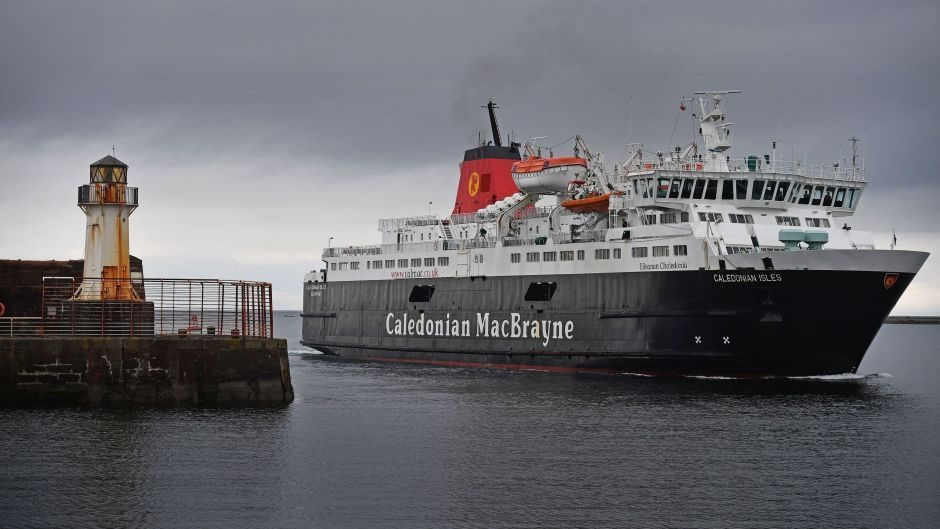
Mike Russell reiterated relaxation of restrictions over Christmas should not be seen as a sign of people being allowed to do as they wish.
Shetland Lib Dem MSP Beatrice Wishart asked if the government could guarantee Scotland’s travel infrastructure would not become overwhelmed.
Mr Russell said he could not and added: “I ask people to take necessary steps themselves to make sure it doesn’t happen.
“There will be issues of capacity on ferry and transport services.
“People should plan and book well ahead. There are capacity restrictions already for social distancing on ferries. Providing people are sensible about it, there should be enough capacity. (But) it is impossible to guarantee.
“People need to realise the travel period will not be extended and should act now.
“Restricting travel is so important (for keeping virus spread low) that these days are inclusive and people should work within that.”
Professor Leitch said any relaxation of travel restrictions will increase the prevalence of the virus and that public health had to try to achieve a balance on how to ease restrictions, given some people would break the rules over the Christmas period regardless.
No date exists
Professor Leitch was further asked if any risk assessments had been carried out regarding the lifting of travel restrictions, to which he replied the government had not.
Commenting after the meeting, Scottish Greens health spokesperson Alison Johnstone said: “Greens have called for the Scottish Government to publish the evidence base behind the decision to relax restrictions over Christmas, but it now appears there isn’t one.
“It’s increasingly clear that the four-nations decision announced earlier this week has been taken in the absence of an evidence base and puts lives at risk.
“It’s inevitable that government is now rolling back on this and tightening the guidance, but it is sending out mixed signals. At the same time as lifting restrictions, the First Minister was telling people the ‘default advice’ was to stick to them.
“We now need the Scottish Government to commission urgent advice from public health experts on the impacts of these rules and what more can be done to reduce the risk of Christmas festivities causing a third wave.”
‘Creativity needed to avoid travel bottlenecks’
Following the meeting, Ms Wishart said the committee should be able to scrutinise plans for social distancing on trains, buses, ferries and at airports.
She also wants the opportunity to ask about sufficient additional train carriages being allocated to festive services and whether additional non-peak services are being made available to vulnerable people attempting to travel in quieter periods.
She said: “Governments across the UK have lent their support to plans for small Christmas family gatherings. Now people need to have confidence travel operators are adapting to this new policy to make their services safe.
Travel bottlenecks could mean large groups of people in confined spaces, that is exactly what should be avoided.”
Beatrice Wishart
“We have to be realistic about people’s desire to get home over the festive period. The trains are going to be used and operators need to go the extra mile now to ensure that comprehensive safety plans are in place.
“Travel bottlenecks could mean large groups of people in confined spaces, that is exactly what should be avoided.
“Social distancing is inevitably going to mean we need more trains on the tracks and more buses on the roads. Holyrood’s Covid Committee should be given the opportunity to scrutinise those plans.
“The Scottish Government and rail operators will need to show that the five-day Christmas window has been fully factored into the announcement today that the timetable will be reduced by 20% just 10 days before this period.”
“Supermarkets and other lifeline services have found innovative ways of extending operations in quieter hours, making special arrangements for vulnerable people so that they can have an extra layer of protection and confidence. I hope to see Scotland’s travel operators applying the same creativity.”
